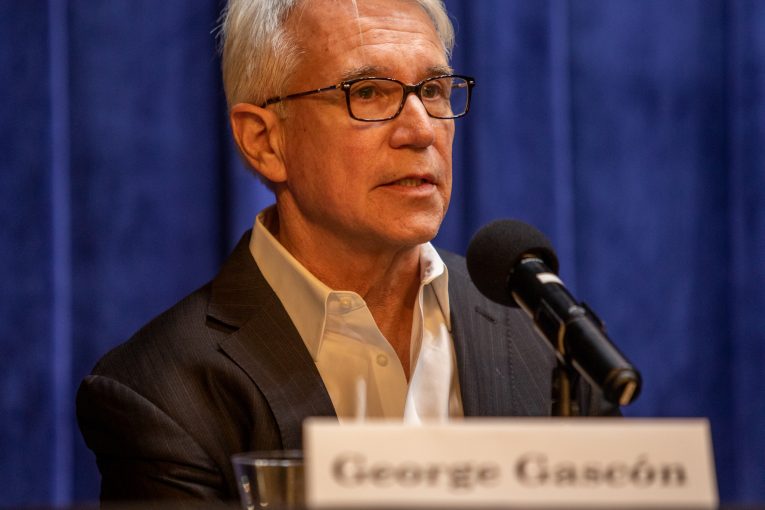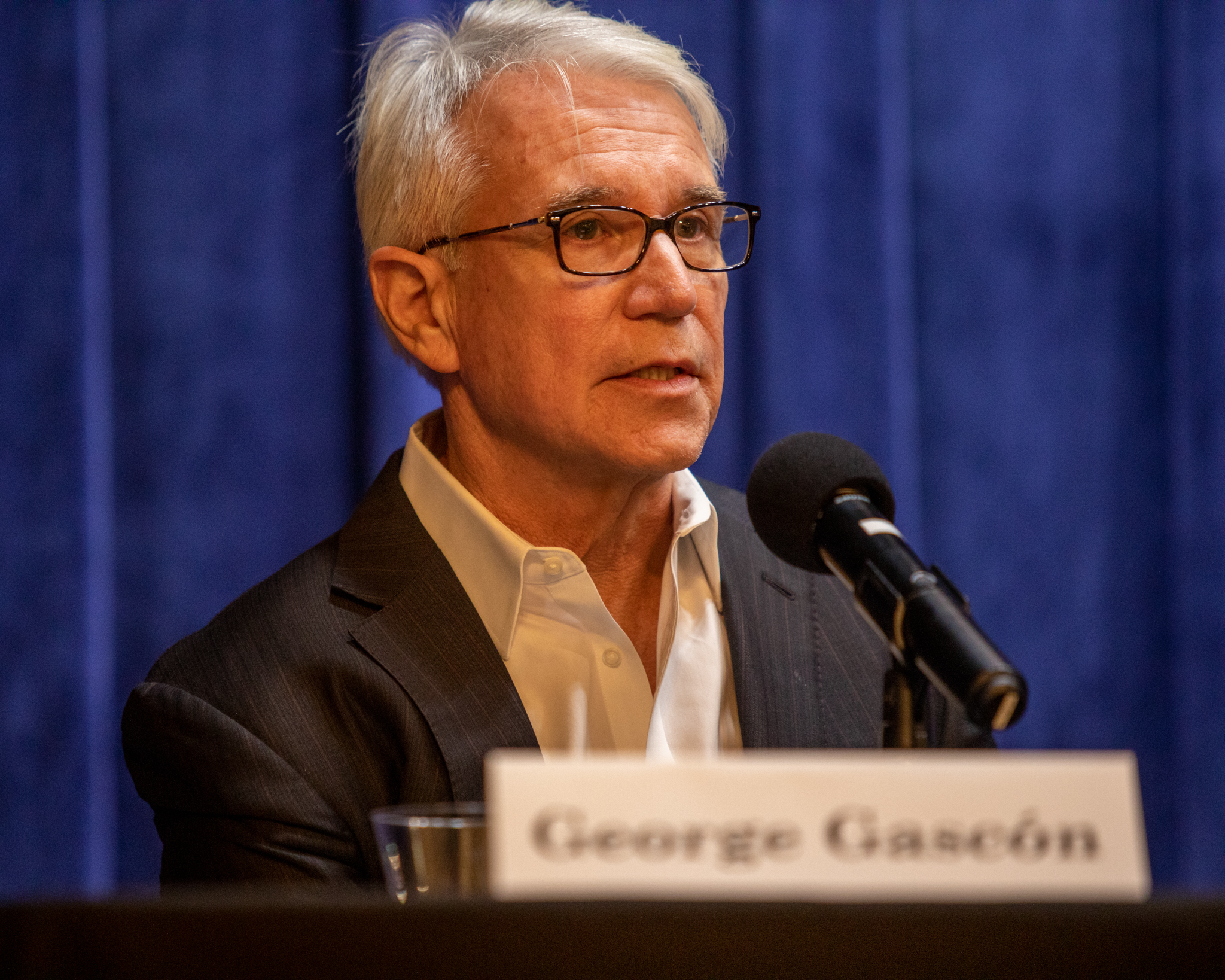

By Elena Rawlison and Karisa Cortez
LOS ANGELES, CA– A recent episode of the LA Times daily news podcast looked at George Gascón– the current LA district attorney—as a case study for the wave of progressive DAs that has swept across the country.
Gascón boasts an impressive slate of achievements in the sphere of public service: having served in the army and as a patrol officer, police chief, and DA in SF.
In order to get a sense of Gascón’s career as a DA thus far and the various perspectives at play in the debate around progressive District Attorneys, podcast host Gustavo Arellano brought in a number of key stakeholders and experts.
First among these interviews was James Quilley, who explained that Gascón’s left leaning policies first emerged during his time working as the police chief in Mesa, Arizona where he clashed with the local sheriff around issues of immigration.
Since this time, he said, Gascón has built upon his beliefs in restorative justice. Currency, Gascón’s key policies include eliminating the death penalty, not trying juveniles as adults, eliminating enhanced sentencing laws, and introducing more diversion programs into the prosecutions work.
These progressive policies have seen consistent and aggressive pushback, looking back as far as the campaign trail. Gascón himself identified two prongs to this opposition: those who prefer  longer sentences and increased punishment to alternatives, and the Republican/conservative sphere that has opposed Gascón from the start, added Quilley.
longer sentences and increased punishment to alternatives, and the Republican/conservative sphere that has opposed Gascón from the start, added Quilley.
Arellano asked Quilley how he thought Gascón compared to his fellow progressive district attorneys in other large cities. While Quilley ultimately remarked that comparing Gascón to a DA who has been in office for three or four years is fruitless, he did identify a trend among Gascón’s policies: follow through, albeit no impact.
This lack of impact can be attributed to the legal and public pushback that Gascón has been met with—exemplified by the prosecutors who sued Gascón for his new policies regarding enhancement sentencing.
Quilley concluded by considering the impact of Gascón’s current struggle, suggesting that if Gascón was successfully recalled (a big if), it would suggest that recalling progressive DAs is not out of the question.
The second interview was with a woman named Desiree Andrade whose 21-year-old son was murdered in 2018. Andrade is helping lead the recall effort against Gascón because under his policies her son’s killers will be eligible for parole and not face the sentence she believes they deserve.
When Gascón entered office he told the attorneys working on her son’s case to dismiss the special circumstance charges. Under new rules from his office her son’s killers will now only have to face 80 percent of the 25 years of their sentences.
Andrade emphasized that she does not see justice if her son’s killers are released. She states that they will get to reunite with their families or have families of their own while she will not be able to be with her son again.
When asked by the interviewer if she has reached out to Gascón, Andrade stated she believes the district attorney should be reaching out to the victims, not the other way around.
She also emphasized that not everyone who is in the recall effort is a Republican or Trump supporter.
She stated that contrary to popular belief it is the victims leading the recall. She believes it is everyday people who are opposing these district attorneys and that they are fighting against injustice. Her message to supporters of Gascón is “if you have ever been in my shoes…you would be on my side.”
The podcast cuts to a speech made by a reverend whose son was also killed. She stated that she did not want her son’s murderers to get 40-50 years, as the excessive amount of time in prison would not serve the murderers, family or the community. She believes many tough on crime policies have not worked and that there needs to be some change.
Andrade’s response to family members who do support Gascón is that “my son’s life mattered, so there is no way I could ever say ‘I hope they’re ok.’” She also stated, “I could never forgive them and I could never say I want what’s best for them.”
Finally, Andrade believes that a good district attorney should look at these issues on a case by case basis. There should not be a blanket policy that changes everything.
The final interview is with George Gascón himself. When asked about the main philosophical difference between himself and his opponents, Gascón stated that the opponents are more focused on punishment than safety.
Gascón also stated that since he was sworn into office people have been talking about recalls and have wanted to redo the election. Gascón believes that his opponents are police unions and Republican donors. He also believes that the movement is driven by political and economic movements.
He asserted that larger cycles of incarceration do not deter crime from being committed. He stated there needs to be a new way of looking at the way crimes are prosecuted. Gascón believes that there needs to be reprogramming of people’s thinking about hate.
Gascón also does not think that the recall movement targeting him and San Francisco District Attorney Chesa Boudin will negatively impact the progressive DA movement.
And he concluded that there is racism deeply embedded in the criminal justice system that needs to go away.
